United States
Cars Are Key to Reducing Poverty
Many advocates for new ways of thinking about places and streets argue for reduced use of cars as the dominant mode of transportation. A new study finds, however that poverty is improved when the poor have access to a car for transportation.
HUD expected to further ease restrictions on mixed-use financing
The administrative change to follow recent successful FHA standards, according to CNU president John Norquist.
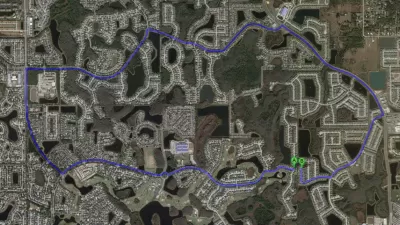
Study: Sprawl is Bad for Public Health
Smart Growth America has released the "Measuring Sprawl 2014" report, which updates the 2002 report "Measuring Sprawl and Its Impact."
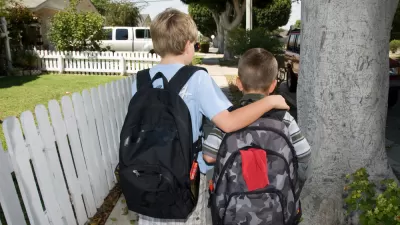
Walkability and the Risk of Mortgage Default
A recent study strengthens the economic case for walkable communities, finding a strong inverse relationship between walkscore and risk of mortgage default.
Charting the 'Urban Shift' Among Technology Start-Ups
Once upon a time, tech start-ups located almost exclusively in the suburbs. New data reveals the extent to which this pattern has been reversed.
What's Wrong With Walk Score's Food Desert Map
Walk Score’s new food desert map is a potentially powerful tool in the ongoing policy debate about access to healthy foods. But it’s still a work in progress.
Don't Tell Me What Happens in The Death and Life of Great American Cities
I am trying to get caught up on The Death and Life of Great American Cities by Jane Jacobs. I'm a chapter behind, so don't tell me what happens.

Ray LaHood to Guest Star on Final Season of Mad Men
The former Secretary of Transportation will join the popular AMC show Mad Men to play a moderate Republican who works across the aisle to deliver badly needed improvements to the nation’s transportation infrastructure.
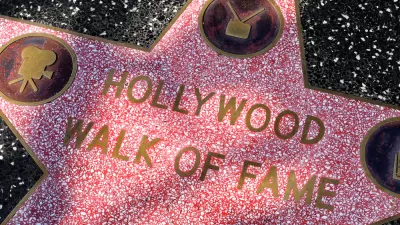
Study: Hollywood Endings Most Likely in Los Angeles
A new study sheds light on why it seems that the sun shines 366.25 days a year in Los Angeles but falls short of solving one of life's great mysteries.

NIMBY Added to the Oxford English Dictionary
The definitive dictionary of the English language, the Oxford English Dictionary, will add the term NIMBY to its latest edition, citing the widespread use and worldwide political relevance of the term as reasons for its inclusion.
Examining the United States’ Urban/Rural Dichotomy
Governing presents a special series examining the “Rural/Urban Divide” in the United States.
New Study Tests Assumptions About Housing Vouchers and Crime
A new paper published in the Urban Studies journal finds a weak, negative relationship between vouchers and violent crime rates. There is no observable relationship between vouchers and violent crime rates in suburban areas.
Come Together Locally for Smarter Growth
Connecting competence to organized support is key to reversing the Sisyphean cycle of urban placemaking.
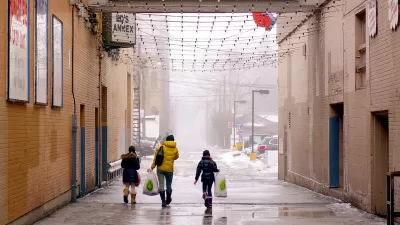
How Easy is Walking to the Grocery Store in Your City?
Angie Schmitt shares news of an effort by WalkScore to rank cities based on the ability of residents to access grocery stores on foot. WalkScore invites planners all over country to use their data to improve walkable access to food in cities.
Extreme Weather Could Replace Climate Change as Focus of Federal Agency
A bill sponsored by Rep. Jim Bridenstine (R-Okla.) whose state has suffered the ravages of recurrent tornadoes would direct the National Oceanic and Atmospheric Administration to research predicting extreme weather events in lieu of climate change.
Metro Areas Dominate National Population Growth
New Census data describes the country’s movement toward large metropolitan areas. Following the recent population growth in cities like Houston and New York, nearly one in three Americans reside in the country’s ten most populated cities.
How Cities Prohibit Annoyances
The 5,000 local ordinances that prohibit “annoyances” often focus on the fraught intersections of the public and private. And it’s probably no surprise that public employees often seek legal protections from annoying (or annoyed) citizens.
The Car-Free Share, and Hail, Their Rides
Ben Adler considers the availability of car-sharing and cab services in maintaining a car-free population.
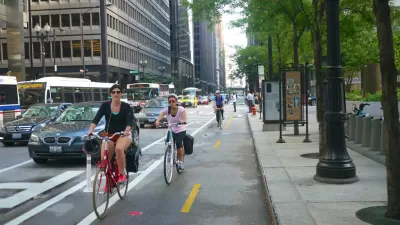
The Place for Bike Lanes
Initial attempts at making city streets more encouraging to cyclists have often been marred by poor design.

Which Cities Segregate Poverty Most Completely?
For the second installment in a five-part series on economic segregation in U.S. metros, Richard Florida examines the cities where poverty stays most hidden from "everyone else."
Pagination
Urban Design for Planners 1: Software Tools
This six-course series explores essential urban design concepts using open source software and equips planners with the tools they need to participate fully in the urban design process.
Planning for Universal Design
Learn the tools for implementing Universal Design in planning regulations.
planning NEXT
Appalachian Highlands Housing Partners
Mpact (founded as Rail~Volution)
City of Camden Redevelopment Agency
City of Astoria
City of Portland
City of Laramie


































